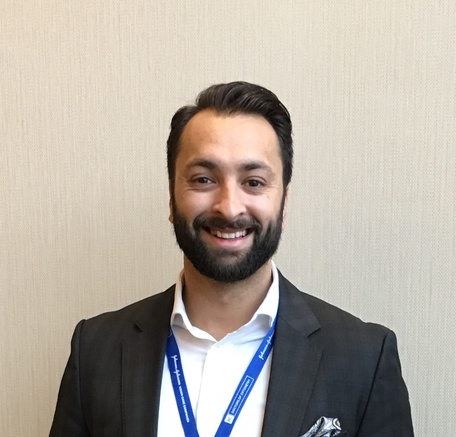During my first few years in practice, I’ve had some distressing discussions and experiences with both prospective patients and those sitting in front of me in the exam chair. It is these experiences that compelled me to write this little manifesto.
I’ll refer to one specific phone conversation I recently had at my office Highstreet Eyecare (shameless plug) which, I think, fairly represents a majority of these situations.
A very pleasant young lady (in her mid-20’s) called the office with some questions about her vision. I’ll briefly summarize the conversation…
—
Young lady: I’ve noticed some changes in my vision. I can’t see as well with my glasses on anymore. I recently went back to the place where I usually buy my glasses. They did an eye exam and said they couldn’t get my vision to 20/20.
Me: Do you know if it was an optometrist who did the exam?
YL: I’m not sure. What’s the difference between an optometrist and the people I get my glasses from?
Me: (I proceeded to explain the differences between optometrists, ophthalmologists, and opticians. I explained how they are all different from the many random optical stores that have no accreditation what so ever. I also explained the difference between a complete eye exam, which includes a thorough assessment of ocular health as well as a refraction for a glasses prescription, and vision testing, which is essentially the automated refraction many optical stores will conduct and refer to as an eye exam.)
YL: Oh, I didn’t know any of that. They just checked my vision and said the new glasses would make my vision better.
Me: (I explained again all the different things we would examine to determine her prescription and rule out any underlying conditions that could be limiting her vision)
YL: Ok. I’ll see…
—
You’ll see??? If I’m not mistaken, isn’t that exactly what you’re having trouble with right now… Seeing?!
Ok, I didn’t say that. I can be a little sarcastic sometimes, but I’m not mean. Especially not to my patients.
These types of conversations bring to light many different concerns. A few of which I will try to address here.
But first, lets time a quick step back… way back… back into time… (Blackstreet reference… anyone?)
A few years ago, when I had first started practicing optometry, I wrote multiple blogs about the impending changes that my profession was about to endure. Changes that were brought on by crony politicians, whose only concern was to fill their pockets with little regard for the public, whom they were elected to serve (I’ll try not to name any names… but, lets just say it was a certain “Health Minister”… who’s name may or may not start with Kevin… and end with Falcon…). These were changes which ultimately contributed to the lowering of health care standards in British Columbia. And they were changes which led to the fall of a childhood hero from his perch upon a pedestal… I’ll never look at Trevor Linden the same way again (See blog post titled “How Trevor Linden Sold Out”). But, I digress…
Today, ONLY in British Columbia, a person can walk into any store operated by ANY individual with absolutely zero credentials and no experience in eye care to buy glasses or contact lenses without a valid prescription. I think that makes it hard to disagree that our standards of health care, at least eye care, are lower than those of any other place in North America.
The Health Minister defended himself by saying that the average individual who has healthy eyes should not have to bother with regular exams and those who do have eye conditions will simply know to have their eyes checked regularly. So much for preventative care. I wonder if Mr. Falcon would be so kind as to describe the symptoms of the early stages of glaucoma, a disease which is one of the leading causes of blindness and affects tens of millions of people worldwide… Oh that’s right, there aren’t any! It is a silent disease. By the time a patient notices the symptoms, there has already been irreparable, irreversible damage. But I’m sure the average person would somehow know, right?
There is also supposed to be a regulation which, loosely translated, states that if an optical store cannot improve a person’s vision to 20/20 or sees any reason for concern, they must send that patient over to an optometrist or ophthalmologist for further testing. Clearly, in the case of the young lady in the above conversation (and many others), they have not been doing that. Which means there are a lot of people walking around with a lower quality vision than they deserve AND, more importantly, potentially suffering from a vision threatening condition.
So, what needs to be done?
I’ve spent a lot of time pointing fingers at different people for tearing down the foundations of our health care. And there definitely are a lot people who are responsible for the failure of our system. Yes, the big companies and the crony politicians play their part. And they play it well. But, it is important to understand that WE must also bear some responsibility. By we, I mean both health care providers AND the public. It is absolutely my responsibility as a health professional to educate my patients and the public about their health. If I don’t do it, then who else will? But, it is also the responsibility of the individual to actively seek out what is best for them. To ask questions, get regular exams, and do what ever else necessary to keep yourself healthy. If you don’t, who else will?
Too often, I hear patients say “I’ve had issues for a long time, but I kept putting it off”. As terrible as it sounds, I can understand, I can relate. We build routines for ourselves and follow them, often blindly (pardon the pun). Call it complacency, laziness, or anything else… We put important things off because it means going out of our way or changing our schedule.
Our bodies are made up, at the most basic level, of cells and nerves and chemical reactions. All of which are following the path of least resistance. So it is only human nature that we do what is easiest for us, to follow the simple route. But on our highest level, we are able to make the decisions about what’s best for us. And I urge you, when it comes to your health, whether its your eyes or your teeth or your heart, take the time to get it done. And get it done right.






